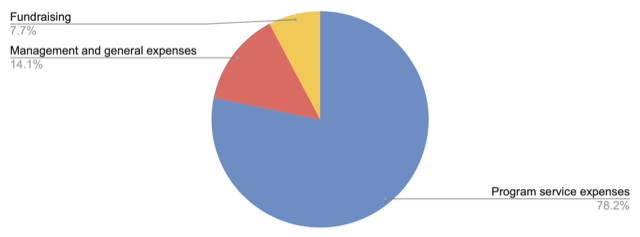I'm Sean Mayberry, and I’m the Founder/ Chief Executive Officer of StrongMinds. I will spend time on the Monday after the Thanksgiving holiday answering questions here (though I may get to some questions sooner).
A little background information about me:
- I founded StrongMinds in 2013. We are a social enterprise/NGO that treats depression in low-income women and adolescents by providing group interpersonal therapy (IPT-G) delivered by lay community health workers. StrongMinds is the only organization scaling a cost-effective solution to the depression epidemic in Africa.
- Our model developed from the findings of a randomized controlled trial in Uganda in 2002 that had remarkable success in treating depression with group interpersonal psychotherapy (IPT-G). The study, by researchers from Johns Hopkins University (JHU), used lay community workers with only a high school education.
- I left my position as the CEO of a global antipoverty organization and founded
StrongMinds, concentrating in Uganda, the site of the previous randomized controlled trial. I used my family’s savings to accomplish this and volunteered full-time for the first 18 months until supporters were identified. We would seek out individuals with an interest in being data-driven, entrepreneurial, people-focused, passionate, open, and collaborative. Those traits eventually informed the core values of the company culture at StrongMinds. - StrongMinds has now treated over 160,000 women with depression to date in Uganda and Zambia. On average, 80% of the women we treat remain depression-free six months after the conclusion of therapy. When our clients become depression-free, they can work more, and their kids eat and attend school more regularly. They also report that they no longer feel isolated and have people to turn to for social support. By the end of 2022, we will have treated over 210,000 women and adolescents through our work.
- Drawing on evidence from over 80 academic studies, Happier Lives Institute has found that the group interpersonal therapy provided by StrongMinds is almost ten times more cost-effective than giving cash to people in extreme poverty (a standard benchmark for aid effectiveness).
- I have been honored to present at a few Effective Altruism events. We love that the
the community has taken such an interest in StrongMinds’ approach centered around data collection, transparency, cultural competence/appropriateness, and human well-being.
Please ask me anything! I look forward to answering all of your questions.
UPDATE: I'm sorry for the delay in responding, but I wanted to take the time to be thoughtful and thorough with each of my responses.



Hi Yonatan. Thanks for the questions. I wouldn't quite say we solved it, but we have found a solution that has had tremendous results in Uganda and Zambia. There are probably a few reasons for this. Most of the communities we work in are very close-knit and interpersonal, so the group talk therapy model of IPT-G works well. Additionally, around 85% of women in sub-Saharan Africa don't have access to quality mental health care. There is a huge treatment gap, for instance, Uganda has approximately 30 trained psychiatrists serving a population of 45M, so we are also filling a dire need by providing these free services using lay community health workers. The symptoms of depression are still not commonly known in Uganda and Zambia, and many people think they are just fatigued, sick, or just unmotivated/lazy, so discovering that there is a way to treat their symptoms and that there are other people experiencing this too is life-changing. Many women in therapy groups form a bond and continue to meet long after therapy ends. They now have a new support system and are no longer isolated. All of these factors play a role in our success.
The program model can be replicated in other geographical locations, and IPT has been shown to work well cross-culturally. We are currently exploring an American pilot where the need is also extreme in underserved BIPOC communities. Our pilot is happening in the Newark, NJ area just outside of NYC. That said, we have to do quite a bit of work to determine how western preferences fit into this, and we are collecting data from some initial groups now.
StrongMinds therapy model is based on an RCT from 2002 in Uganda. It has shown to be a highly effective way to reach women in underserved and remote areas that would otherwise not have access to mental health treatment options.